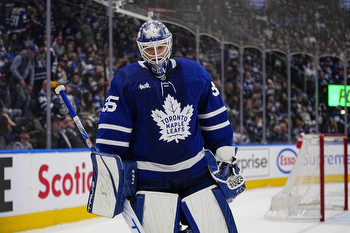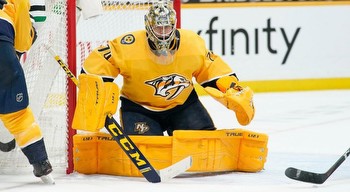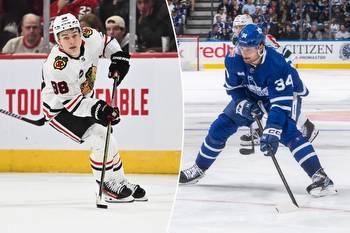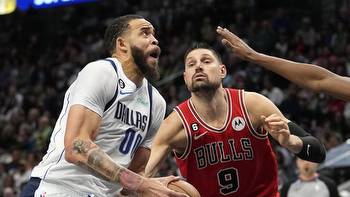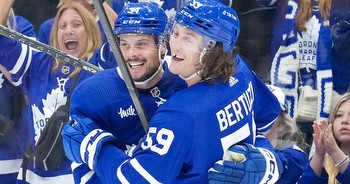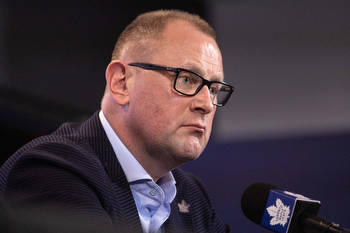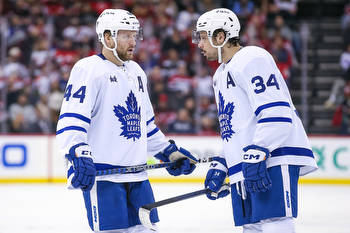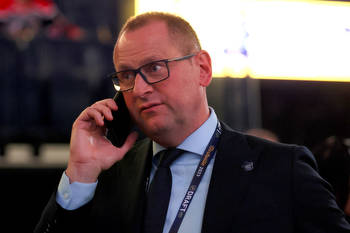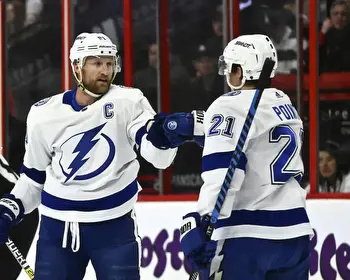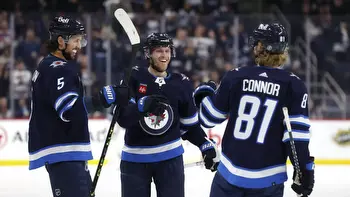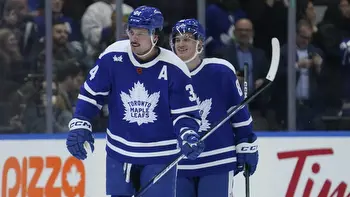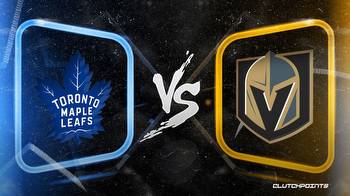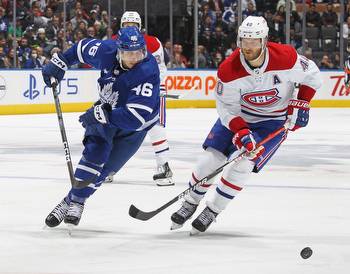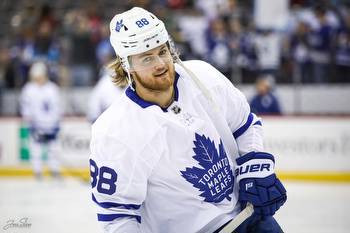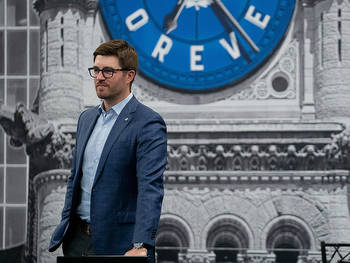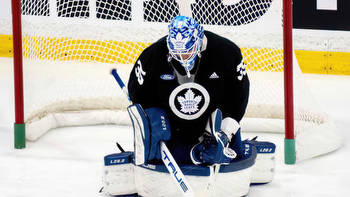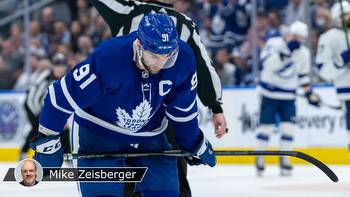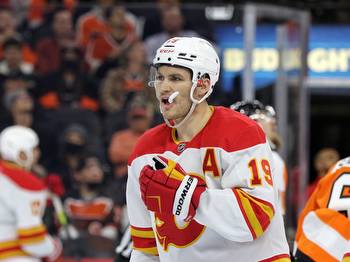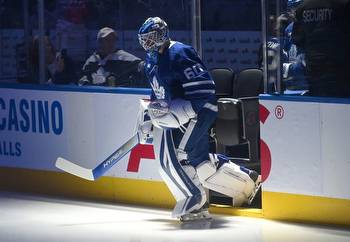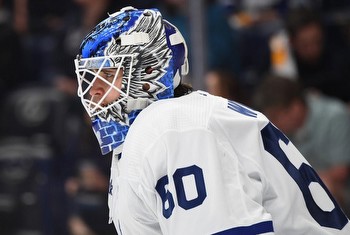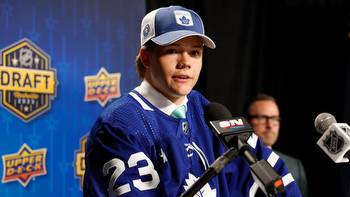Rodion Amirov, Maple Leafs’ 2020 first-round pick, dies at 21
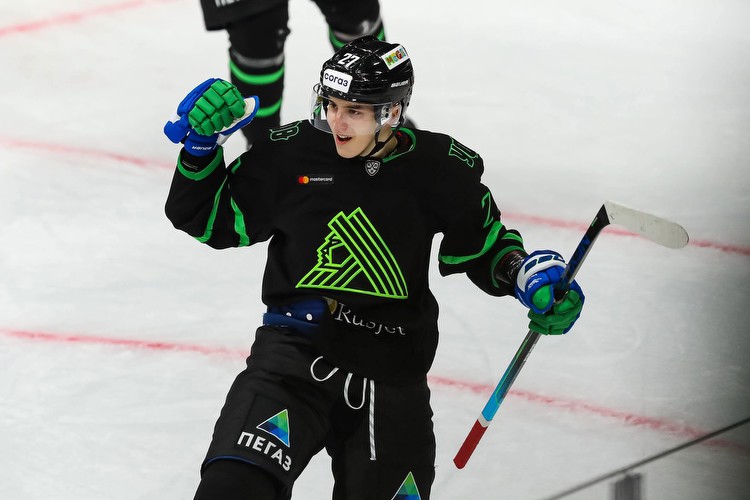
Rodion Amirov, the Toronto Maple Leafs’ 2020 first-round pick, died at the age of 21, his agent Dan Milstein announced Monday. Amirov was diagnosed with a brain tumor in 2022 while playing for Salavat Yulayev Ufa in the KHL.
“The entire Maple Leafs organization is devastated by this tragic loss,” Maple Leafs president and alternate governor Brendan Shanahan said in a statement. “Over the duration of his courageous battle, Rodion’s positivity inspired everyone around him, and he made lasting impressions with our team and fans in his brief visits to Toronto. It’s incredibly sad to see a young man with so much promise taken from us so soon. We offer our deepest condolences to Rodion’s family and friends as we mourn this loss together.”
I never got to know Rodion personally. That’s a regret I’ll probably have as long as I keep writing about sports. It was essentially impossible to arrange a time to speak with him while he was playing in the KHL, nor did he speak to the media when he was in Toronto, which is understandable.
Still, not speaking to him, but writing about him, is an unfortunate part of the reality of journalists and athletes. The entire relationship can feel transactional at times. From the moment Rodion was drafted, he was shrouded in mystery.
When Morgan Rielly turned a Leafs jersey around to reveal Amirov’s name on the back of a jersey celebrating him as the Leafs’ 15th pick in 2020, their highest pick since Auston Matthews was selected first in 2016, I was surprised. I had him lower on my short list of players I thought would be fitting for the Leafs than draft-eligible players. I immediately texted an NHL scout I trust and one who understands the Leafs organization: what exactly were they thinking?
The scout questioned the pick too, citing the fact that he has the tendency to get sleepy on the ice and disappear from games at times.
Why the Maple Leafs went with Rodion Amirov with the 15th overall pick
That Rodion’s first availability as a Leafs draft pick saw him emerge on a grainy Zoom feed from Russia while lying in a bed and speaking softly through a hastily organized translator only added to the mystery surrounding him. Did he want to play in the NHL? Would he be able to overcome his slight frame? How long until his remarkable skill developed to the point that he would be NHL-ready?
These are perhaps standard questions to ask of a new, young draft pick. But that doesn’t mean they’re the right questions.
As soon as he was drafted, I began calling everyone I could get a hold of to discuss this mysterious player and person.
“He can be a future star,” then-Salavat teammate Linus Omark told me.
“He knows that to play in the NHL, he needs to be better,” then-Salavat assistant coach Viktor Kozlov told me. “He’s like a sponge. He sucks all the information up that helps him to get better. That’s what I like about him. He asks questions and likes to learn.”
Maple Leafs draft pick Rodion Amirov 'can be a future star'
But for all that people told me about him, I never spoke to Rodion in person. I ended up writing multiple stories about Amirov between the day he was drafted and Monday, including insight on him in even more prospect notebooks. When he abruptly stopped playing in KHL games, the people who normally took my calls about Rodion stopped answering the phone, likely increasing the feeling of mystery surrounding him and almost certainly increasing the odds that something was genuinely concerning about his future in hockey.
It’s unfair that a dedicated and passionate fanbase never got to know a person that they all seemed to end up rooting for toward the end of his life.
We — and by that I mean the media and fans — have to ask questions about what a player is, and can be, on the ice.
But Rodion’s death is a reminder to me that we also have to ask questions about who the athletes we cheer for are as people. Because when we see athletes perform, we only see the tip of the iceberg of who they are. Hockey careers can be short, as Rodion’s death reminds us, and if we’re not seeking to better understand hockey players as people, then we’re doing a disservice to everything that they have done to get to where they are.
I think, for example, about how much more meaningful the conversations I had with Jake Muzzin were when the topic veered towards his two young children, and his passion, and I mean passion for getting better at golf.
I wish I had a chance to ask Rodion more about himself, and what he wanted the world to know about him. I wish he would have lived far, far longer, and had the opportunity to tell us. Because right now, we’re going to remember Amirov as a No. 15 pick who succumbed to brain cancer. And that is surely just a small fraction of what he should be known for.
Nevertheless, that doesn’t mean the Rodion we knew shouldn’t be celebrated. From a distance, he seemed, and certainly spoke and moved, like a soft soul. His affinity for a stray cat was a glimpse into his tender side.
He idolized his heroes, like Alex Ovechkin. Watching Rodion stand in awe of Ovechkin, presumably the first and only time he met the greatest Russian player of all time and hung off his every word while his teammate, Ilya Samsonov stick-handled through his legs to break the tension, was a moment I know only a few people witnessed. And now it’s one I wish more people saw.
“It’s really important for him, before he comes to this league, to understand what you need to do to get to a high level every day, and to have some progression,” Samsonov said of Amirov in October 2022.
“You remember that,” Samsomov added of how veteran players helped him when he was younger. “And you try to do that with young players, too. It doesn’t matter if they’re Russian players.”
Rodion Amirov, Ilya Samsonov and the bond they shared together in Toronto
And of course, Amirov could fly on the ice, showing natural talent and inclinations with the puck that made me, at times, say out loud, “Ah, I get it.”
Hearing stories from others about how Rodion battled his brain tumor, I have little doubt that his inner strength and sense of self-belief would have eventually pushed him toward the NHL. Development is not linear, and I’ll be the first to raise my hand in embarrassment and frustration that I wrote about Rodion’s future as a Leaf with some, but not all, of the information surrounding him.
Rodion’s death reminds me that we are not the jobs we have, nor should we forever be associated with the worst events in our lives.
There is always, always more to everyone’s story. There are always, always better questions to ask.
I just wish we could have learned more about a person who, heartbreakingly, never really had the chance to share his whole story.

